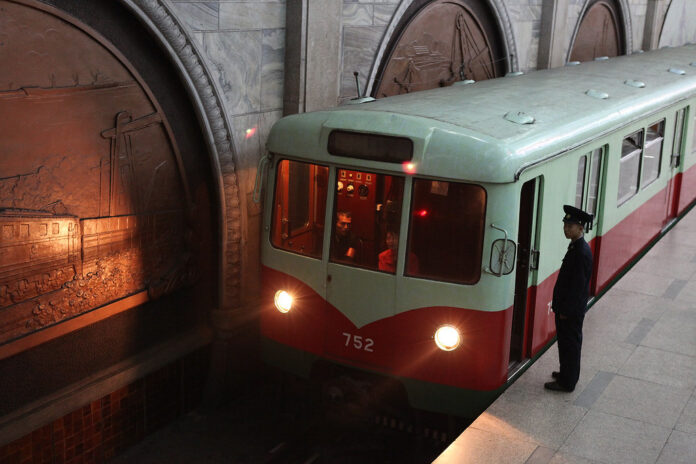Pyongyang recently mobilized the city’s various transportation services to reduce people’s travel times to and from nearby farms during the country’s “agriculture mobilization period,” Daily NK has learned.
North Korea has made “grain production” the nation’s top economic development task this year, and the move suggests that the government is making an all-out-effort to boost agricultural production.
Speaking on condition of anonymity for security reasons, a source in Pyongyang told Daily NK on Monday that the mobilization order was handed down earlier this month, and instructed the city’s trolleybus and tram authorities, along with inner and inter-city bus authorities, to run at full capacity from 4 AM to midnight for 20 days beginning May 15.
In handing down the order, the city authorities appear to have recognized the difficulties faced by many people to get to and from work on the farms during the agricultural mobilization period.
Despite being North Korea’s capital city, Pyongyang has long suffered chronic shortages of electricity and oil, and some vehicles in the city’s public transportation sector have not been properly repaired due to a lack of parts. Reflecting this situation, Pyongyang’s city government even issued an order to party cadres to “fully guarantee electricity and oil for transportation.”
Following the city’s order for transportation services to run at full capacity, transportation agencies have lengthened the work hours of their drivers and operators, calling on them to work until every last Pyongyang resident returns to the city in the evening. This has sparked rumors that almost all drivers and operators have been mobilized this year, unlike in the past, when only some transportation personnel were mobilized during agricultural production campaigns.
Pyongyang’s efforts are welcomed by local residents
Pyongyangites have generally reacted positively to the city’s efforts to improve transportation, according to the source.
“We used to work hard on the farms and then dispiritingly wait in line forever [for a bus or trolleybus], but this year, we can get back and forth in ease. The city party committee seems to be doing its job. People say things are much better now that cadres are racking their brains to figure out how to improve things.
“With buses operating so well this year, it is not as common to see great crowds of people heading to the farms on bicycles, so the streets seem peaceful.”
In regards to a recent report by the Rodong Sinmun that “rice-transplantation was finished on main farm fields” throughout North Korea, the source told Daily NK that “work is still ongoing in the two Hwanghae provinces and other regions” given that “people are still going to and from farms to engage in farmwork in those places.”
Translated by David Black. Edited by Robert Lauler.
Daily NK works with a network of sources who live inside North Korea, China and elsewhere. Their identities remain anonymous due to security concerns. More information about Daily NK’s reporting partner network and information gathering activities can be found on our FAQ page here.
Please direct any comments or questions about this article to dailynkenglish@uni-media.net.


















